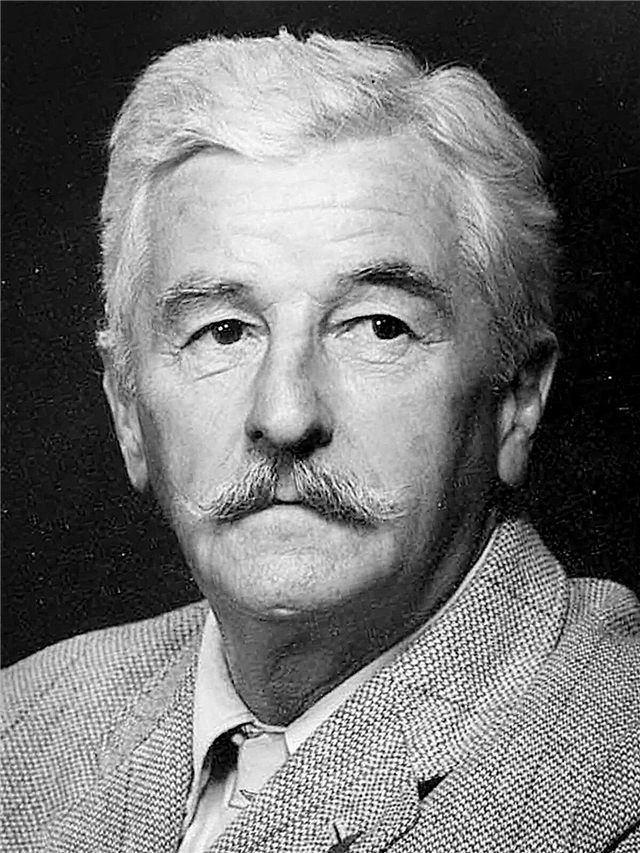He was six feet tall, perhaps one or two inches shorter than the build of a strong man, and he walked right at you, with his head bowed and staring intently from underneath. He stood as if stubbornly insisted on his rights, although there was nothing hostile in this, it seemed he attributed this equally to himself and to everyone else. He was always dressed immaculately, from head to toe - in white. It is unlikely that at the turn of the past century, in the seaports east of Suez: in Bombay, Calcutta, Rangoon, Penang, Batavia, one could find the best sea clerk - a representative of trading companies supplying ships with everything necessary. He was very disposed to himself, and the owners were terribly annoyed when he suddenly left them, usually moving further east and taking with him the carefully kept secret of his inconstancy. He was not always a sea clerk and did not forever remain him. He, the son of an English rural priest, was simply called Jim, but the Malays from the forest village, where he eventually flew away from something unbearable, called him Tuan Jim, that is, Lord Jim himself. He was not yet twenty-four years old. From childhood he raved about the sea, got a license for navigation, sailed as an assistant captain in the southern seas. Having recovered from the wound after one unsuccessful voyage, he was about to return to England, but instead unexpectedly entered the Patna, a small and rather decrepit steamer, sailing to Aden with eight hundred Muslim pilgrims. The team consisted of several white sailors, led by a German skipper, a rude fat man with repulsive manners. The magnificent calm of the sea was not disturbed by anything, when in the middle of the night the ship experienced a slight push. Later, during the trial, experts agreed that it was most likely an old sunken ship, sailing keel up under the water. Inspection of the bow of the nose terrified the team: the water quickly arrived through the hole, the ship was kept from flooding only by a thin and absolutely unreliable iron bulkhead of the bow compartment. “I felt her arched from the pressure of the water, pieces of rust fell on top of me,” Jim later told me about what was left with him forever. The steamer sank into the water, minutes to death. There was no place in boats and for a third of people, there was no time to lower boats. The skipper and two mechanics with feverish efforts nevertheless lowered one boat - they only thought about their own salvation. When the boat sailed, Jim, all this time in a daze of hopelessness, found himself in it. Most likely, in the last seconds he made this unexpected jump for himself from the board of a sinking ship, not out of fear for his life, but from the inability to bear the horror of his imagination before the chilling pictures of the imminent death of hundreds of people now sleeping peacefully. A sudden flurry flew in, darkness obscured the ship's lights. “It sank, sank! One more minute ... ”- the fugitives spoke excitedly, and then Jim finally understood the disastrousness of his act. It was a crime against the laws of the sea, a crime against the spirit of humanity, a terrible and irreparable crime against oneself. It was a lost opportunity to save people and become a hero. It was much worse than death. The lie invented by the fugitives to justify this act was not needed. A miracle happened: the old rusty bulkhead withstood the pressure of water, the French gunboat brought Patna to the port in tow. Learning about this, the skipper fled, the mechanics took refuge in the hospital, only Jim appeared before the sea court. The case was loud and caused widespread indignation. The verdict is the deprivation of a skipper license, “Oh yes, I was at this trial ...” - Marlowe, the captain of the English merchant fleet, begins his account of the story of Jim here, which he did not know in detail. nobody chrome him. The cigar smoldered in his hand, and the cigar lights of his listeners, who were sitting in sun loungers on the porch of the hotel in one of the ports of the southeastern seas, flashed and slowly moved like fireflies in the darkness of a fragrant and clear tropical night. Marlowe told ...
“This guy was a mystery. He went through all the humiliations of the investigation, although he might not have done so. He suffered. He dreamed of being understood. He did not accept sympathy. He longed to start a new life. He could not cope with the ghost of the past. He inspired confidence and sympathy, but in the depths of all this was a terrible suspicion and disappointment for everyone. He was refined, he was exalted, he was exalted, he was ready for feats, but the sky, the sea, people, and the ship all betrayed him. He wanted to regain his confidence. He wanted to close the door behind him forever, he wanted genuine fame - and genuine obscurity. He was worthy of them. He was one of us, but we should never be like him.
Two times I helped him get a decent place, but each time something reminded me of the past and everything went to dust. The earth seemed small for his flight. Finally, chance, a friend of all capable of patience, extended his hand over him. I told his story to my Friend Stein, a wealthy merchant and an outstanding entomologist collector who spent his entire life in the East. His diagnosis was surprisingly simple: “I perfectly understand all this, he is a romantic. A romantic must follow his dream. Her mercy is unlimited. This is the only way. "
Jim got a place at the Stein trading post in Patusan, a place remote from all the machinations of civilization. The virgin forests of Malaya closed behind him.
Three years later I visited Patusan. Tuan Jim became the organizer of this abandoned country, her hero, her demigod. Peace descended upon him and seemed to spread among the mountains, forests and river valleys. With his fearlessness and military prudence, he pacified the fierce local robber Sheriff Ali and took his fortifications. The cunning and vicious Raja, ruler of the country, trembled before him. The leader of the Boogie tribe, the wise Doramin, was with him in a noble and touching friendship, and the son of the leader had relations with him of that special intimacy that can only be between people of different races.
Love came to him. The adoptive daughter of Stein's former agent, the Portuguese Cornelius, half-blood Juel, a gentle, courageous and unhappy girl before meeting him, became his wife. “I guess I'm still worth something if people can trust me,” Jim said with expressive sincerity.
“I had to assure all these people, including his wife, that Jim would never leave their countries, as all other white people they had ever seen did. He will stay here forever. I myself was sure of that. There was no other place on earth for him, and for this place there was no man like him. Romance chose him as her prey, and this was the only intelligible truth of this story. We said goodbye forever. ”
Marlow finished his story, the audience dispersed. Further is already known from his manuscript, in which he tried to collect everything that could be learned about the completion of this story. It was an amazing adventure, and the most amazing thing was that this story was true.
It began with the fact that a certain man nicknamed "gentleman Brown," this blind assistant to the dark forces, who played the miserable role of the modern half-pirate half-tramp, managed to steal the Spanish schooner. Hoping to get hold of the provisions for his starving gang by robbery, he dropped anchor at the mouth of the Patuzan River and on the longboat climbed up to the village. To the amazement of the bandits, the "people of Jim" resisted so decisively that they were soon surrounded on a hill. Negotiations took place between Brown and Jim - two representatives of the white race, standing at different poles of the universe. Desperate for salvation, Brown instinctively drives the beast finds Jim's weak spot. He says that Jim has a real opportunity, having prevented bloodshed, to save many people from death. Jim, the only victim of Patna, cannot resist this. At the tribal council, he says: "Everyone will be safe and sound, I guarantee my head." Brown Barkas is allowed to sail. A barrage detachment led by the leader’s son should also let him through. Meanwhile, Cornelius joined Brown, a man who hated Jim for changing his life in Patusan over the course of three years, making all the worthlessness of his predecessor obvious. Taking advantage of betrayal, the bandits attack by surprise the detachment, the son of the leader is killed. The terrible news of his death comes to the village. The people cannot understand the reasons for this disaster, but Jim's guilt is obvious to them. Jim Jewel's wife and faithful servants beg him to defend himself in his fortified estate or to flee.
But loneliness had already closed over him. "I cannot save a life that is not there." Having rejected all the pleas, Lord Jim goes to the house of the leader Doramina, enters the circle of light, where the body of the murdered friend lies. Unable to overcome his grief, Doramin kills this strange white man.
He leaves in the shadow of a cloud, mysterious, unforgiven, forgotten, such a romantic, unknown conqueror of fame. He was one of us. And although now he often seems to be just a mysterious ghost, there are days when his being is felt with stunning power.












